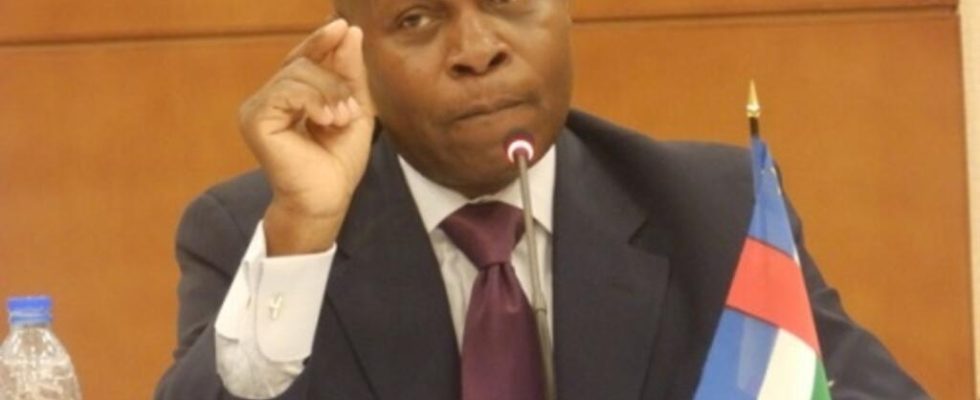Launched by the African Mathematical Union, the Gaston-Mandata-N’Guérékata prize will be awarded every two years to African researchers based on the continent or elsewhere in the world. This prize, worth $3,000, aims to raise awareness of their work. Interview with Cameroonian mathematician Abdon Atangana, one of the leaders of the African Mathematical Union.
4 mins
Cameroonian mathematics teacher, Abdon Atangana is one of the best mathematicians in the world according to several rankings. He returns to the reasons which motivated the creation of the Gaston-Mandata-N’Guérékata excellence prize, which will be awarded for the first time this year. “ Africa must have its publishing house, Africa must have its medals “, he pleads.
RFI: Why did you create this prize for excellence in mathematics?
Abdon Atangana: We noticed that the medals in mathematics do not bear the names of Africans. This creates a problem because young Africans may think that mathematics is only done in the West, that no African has ever contributed to the development of mathematics in the world. But if we go back in history, Africans contributed until people like Thales or Pythagoras came to Africa to study mathematics.
Today, there are few African mathematicians who shine and they are outside Africa. We therefore ask ourselves this question: to be a great mathematician, do you have to leave your continent? Africa contributes 0.002% of publications. African mathematicians are not recognized, they have no visibility. When there is the International Mathematical Union event, no African mathematician is invited. The Fields medal, awarded to young mathematicians under the age of 40, has never been given to an African, or to a black person in general.
This is why we created this prize, which will be awarded every two years. All African mathematicians, who are inside and outside the continent, will be able to participate.
Beyond this prize, what must change for African mathematicians to be fully recognized?
To be recognized, you must write a scientific paper and this paper must be published. It must therefore pass into the hands of publishers. Just today, a young Senegalese called me to tell me that all the papers he wrote were directly rejected by the American or European newspapers to which he sent them. How can we be known if our work is not published?
What we must do as Africans is create a publishing house, which will allow us to publish the work we do in Africa in mathematics, chemistry, history… As Europe has done, as America has done, as China is doing. This will allow us to be more visible. What makes the United States strong is not that they work better than everyone else, it’s that they publish their papers, and the whole world sees them.
The most important thing is that Africa must have its publishing house, Africa must have its medals. We can no longer be academic slaves. That is to say, every time we want to publish in a European journal, if it is Open Access, we pay a lot of money even though we don’t have any.
Is the learning and practice of mathematics progressing on the African continent?
Africa was the cradle of mathematics. People came from anywhere to learn mathematics in Africa. With colonization, Africans lost their identity, their personality. But fractal structures, for example, are found in many kingdoms in Africa, it’s natural. Women are braided with fractal structures. Mathematics is in our blood as Africans.
The way mathematics was presented to us, it was just for the formulas. So it’s not just about formulas. It’s a tool we use to solve problems in nature. If we can change the way mathematics is presented to young Africans, then they will study mathematics with enthusiasm. In Africa today, few people are interested in it. This may also be why we don’t have many publications.
In Europe, mathematics is used for innovation or engineering. I will fight body and soul to ensure that this is established in Africa. The African Union and governments should also put money into education. What unites Africa is football. But what should unite Africa is science, technology, computing, and then mathematics. Because this is what Europeans, Americans and Asians use for the development of their continents.
Who is Gaston Mandata N’Guérékata?
Gaston Mandata N’Guérékata is a Central African mathematician, now aged 71. He has established himself as the world specialist in almost automorphic functions. It is the study of periodic or almost periodic phenomena, in other words perfectly regular or almost perfectly regular, such as, for example, the beating of the human heart.
A native of Paoua, Gaston Mandata N’Guérékata is the author of more than 300 publications, an exceptional production. He was the first Central African student to obtain a doctorate, in all disciplines. It was at the University of Montreal, Canada in 1980.
He is also the first African to join the World Academy of Sciences, elected by colleagues from around the world in 2004. Dean of the University of Bangui then, later, distinguished professor at Morgan University in Baltimore in the United States. -United, Gaston Mandata N’Guérékata traveled the African continent to train teachers: in Morocco, Burkina Faso and Senegal.
That a prize for excellence in mathematics bears his name is for him “ an apotheosis ”, in his own words. He hopes his career will inspire young African mathematicians.
